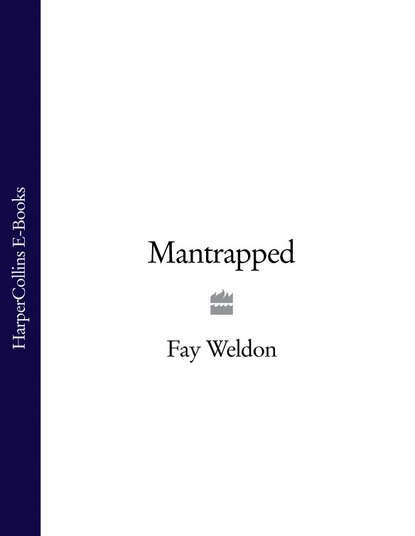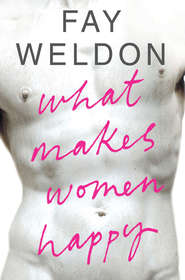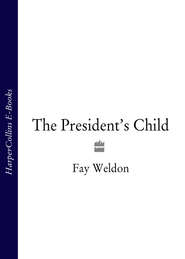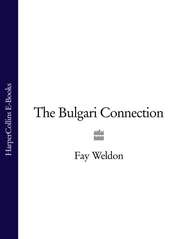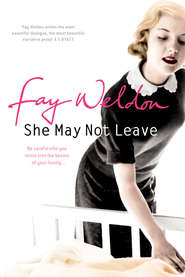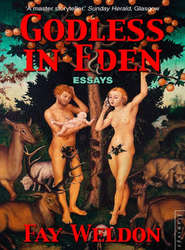По всем вопросам обращайтесь на: info@litportal.ru
(©) 2003-2024.
✖
Mantrapped
Настройки чтения
Размер шрифта
Высота строк
Поля
Trisha has to rent: she can’t buy. She has no money, other than what she makes from the sale, and that will have to go to pay off the last remaining debts. The auctioneers will want their commission; the tax man will want his last remaining pennies before the benefit agencies take over and pay out what the tax man has brought in. Everything will be recorded on computer and camera. Trisha’s face will be studied by security cameras as she stands in line at Job Centres and welfare services. No one will let Trisha go free but no one will let Trisha starve. Trisha, by her careless living, has created quite an amount of work for all kinds of people to do, which is to the greater good, no doubt, and just as well, since the human race is in search of meaningful employment, and caring for others, making a difference, is what it likes to do.
Trisha makes the phone call she has been putting off. ‘Hi there, Mrs Kovac,’ says Trisha. She uses her mobile: the landline has long since been disconnected, and the instrument added to the others in the pile flagged Assorted Electronics, £30. ‘Remember me? Trisha?’ She speaks cheerfully. No point in dispiriting others. ‘I’m the one about the flat. Thanks, I’d love to take it.’
‘You’re too late,’ says Mrs Kovac. ‘I told you to ring before midday. It’s gone to the next person on the list. Flats round here are like gold dust. I was doing you a favour not wanting a yes or no there and then.’
Some people enjoy the power that owning the roof over others’ heads entails: to be able to be kind and offer it, or to be mean and snatch it away at will—yes, that can be rewarding. Mrs Kovac finds it so. Trisha has met all too many of her kind lately, power freaks, the kind that cluster in banks or call centres, or wherever desperate need reveals itself. The officials concerned with her bankruptcy—she had offered them chocolate biscuits out of the generosity of her heart and been told she was buying them at other people’s expense; there must henceforth be only digestive—enjoyed her helplessness: so did the social workers, who spoke with the soft, consoling voices of the habitually cruel, which belied hard eyes, and the contempt which seethed within. Sensitised now to the unspoken words: How have you come to be in this fix? Serve you right! Now you, who thought yourself so grand, are brought as low as us! Mrs Kovac is another. Trisha realises she had done it wrong. As with landlords, so in doctor’s surgeries, as in all places where you depend upon others for help, it is wiser to weep, wail, and show distress than to display good cheer. Allow those in charge to show mercy, and then they will. But first, crawl.
Trisha weeps and snivels on the phone. She tells herself it is planned and calculated. It is not. She weeps real tears. Oh please, Mrs Kovac, please! She wants the flat, needs it. It is cheap and dirty and damp but it will do. It smells violently of carbon tetrachloride. Mrs Kovac undertakes ‘spotting’—removing the worst stains by hand—in the back of the shop, before sending other people’s dirty clothes off and away to the mysterious places where soiled rags are restored and returned crisp and clean and plastic wrapped. But there are worse smells to live with. Carbon tetrachloride at least smells of improvement, renewal, hope.
Mrs Kovac previously imported uneducated girls from the Far East, two a penny in their own land, where girls were on the whole disregarded. They were brought in on cheap flights, and allocated where Western need most lay. The clever ones were whisked off into banks, the pretty ones landed in the sex industry, the careful ones became nannies, the kind ones carers, and the daft and docile ones, Mrs Kovac’s speciality, became cleaners. Now she ran Kleene Machine she would trust the most dextrous to do mending and repair work: replace buttons, patch, take up hems, let out seams—there is a lot of such work to be done: these days, with exercise done or neglected, diets working or otherwise, people change their shape rapidly. Fat today, slim tomorrow: wide-muscled shoulders on Saturday night, soft and sloping a week hence. But good mending girls were in short supply: the art of careful, delicate and precise workmanship was dying in the East as it long since had in the West. ‘Repairs’ were a good little money earner if you got it right but finding the staff was an increasing problem.
A few of Mrs Kovac’s best girls had got away to good jobs in the fashion industry in Paris, where they commanded good wages. Now they had learned the route, too many others followed. Lately the bottom had fallen out of the Far East market: girls from Malaysia, Indonesia and Thailand were earning their living at home, their national economies were better. Times were better. Eastern Europe and Russia was the new market for girls. Soon that too would dry up and she would be left with the British, who were too disdainful to exert themselves at such mundane and badly-paid tasks. Poles were hopeless at sewing but good cleaners. It was a Communist upbringing mixed up with Catholic guilt that did it, in Mrs Kovac’s opinion. They scrubbed both to cleanse their sins and benefit the community. But she could see that someone like Trisha, who had let slip about her past in embroidery, and was clearly in reduced circumstances, might be persuaded to join the mending army.
What Trisha had liked about the flat on her earlier brief inspection of it was that it had its own side entrance. You didn’t have to go through the shop to get to it. It was private. She could make it nice. A few throws, some cushions and a scented candle or two and it would be just fine. She’d turn it into a little love nest. The area was marginally worrying. There was a Starbucks just around the corner, true—a sign that the district was going up in the world; but there was also a pile of broken syringes outside Kleene Machine waiting for a street-cleaner who never came to sweep them up in his little machine. Touch and go, Trisha thought, but she wouldn’t be there for long. This was just a staging post between one good life and the next—with any luck. First, Mrs Kovac had to be persuaded.
‘Please, please,’ said Trisha, ‘I don’t know what I’m going to do; I’ve got no one to be there for me, nowhere to live. I don’t know how my life has come to this but it has.’ And so forth.
Mrs Kovac said she couldn’t change her mind, she always kept her word, and besides, the new tenant was prepared to do bits and pieces of mending and sewing in part return for rent.
‘I can do that!’ said Trisha. ‘It’s just up my street!’ and indeed this was true. She had been to the London College of Embroidery for a term, between school and Drama College. She’d written this on the statutory form provided by the Rental Accommodation Office, which she’d given Mrs Kovac, and which gave the life details everyone seemed to want these days.
‘If it means all that to you,’ said Mrs Kovac, grudgingly, ‘I’ll put the other person off.’ So that was that, arranged. Fate took away with one hand and gave it back with the other, albeit finding the recipient a little more shop-soiled by age and experience each time it happened. Trisha didn’t suppose her mending duties would be onerous, since Mrs Kovac was prepared to reduce the rent by only five pounds a week. She would meet that problem when she came to it.
On her way to her new home, riding in the front of the van with the removal man and her bits and pieces behind, she felt exhilarated, if a little as if she were the Fool in the Tarot pack, about to walk jauntily over the cliff edge into thin air. She tried to remember little Spencer’s face and somehow couldn’t quite envisage it. He belonged to some woman who had won a fortune in a lottery and lost it all in a decade. Through her inattention, drink and gambling, he now belonged to his father. That was justice. Men should remember they are fathers too.
It is easy enough to forget children in their absence. The bonding process works best when the child is within earshot. Birds and humans are designed to go foraging for their young and to return to the nest when the offspring is needy and calls out. If the call can’t be heard the parent forgets. Other creatures need proximity of touch. Take a cow from a calf and in a couple of hours the cow forgets and the tormented lowing stops. After half a day the cat without kittens stops prowling. Why should we be different? But sometimes Trisha feels bad because she gives so little thought to her absent child.
The mattress turned out to be bigger than Trisha supposed, or else the bedroom was smaller than she remembered. You had to choose which one you wanted to open properly—the bedroom or the wardrobe door—you couldn’t have both. Trisha chose the bedroom door. Clothes were henceforth to be unimportant to her new life. She would take all her little fur-lined jackets to the charity shop: she would go to work in dark skirts and white shirts. She would be plain and useful. She was full of dreams of redemption, of absolution. She would have to clamber over the mattress, no doubt, for the odd feather stole and silky chemise, but at least her back would not hurt, only her pride. She would earn her own money and keep away from men. She would live quietly and lick her wounds until she felt stronger. She would try never again to weep in front of the likes of Mrs Kovac, never to be humiliated, never be reduced to inchoate self-pity.
Trisha’s soul was much like her mattress: soiled but comfortable.
Novels are not enough (#ulink_c00cb438-1739-5952-97b2-ccc300582f59)
Novels alone are not enough. Self-revelation is required. Readers these days demand to know the credentials of their writers, and so they should. Too often readers cry out for bread and are given stones: writers fail them, fob them off with thrillers, good guys on the political left, the bad guys on the right, or chick lit, first-person tales in the present tense leavened by wisecracks, feeble emotions if nifty enough plots. Writers have to get published somehow: living in garrets is out of fashion. Who would take them seriously if they did? Once writers alone in all the world had privileged information: they could read the human mind and pass the knowledge on. But these days their USP, their Unique Selling Proposition, is wearing thin. Such knowledge is no longer arcane: everyone knows everything. Freud and Jung and a host of psychotherapists have laid out the road map of the mind for all to see: the mechanics of intellectual and emotional reaction have been made clear. From Meet Yourself as You Really Are; I’m Okay, You’re Okay; Men are from Mars, Women are from Venus; The Cinderella Complex and their like, to Help Yourself to Contentment programmes on TV, everyone is now their own expert. Since Meg Ryan faked an orgasm in public, what is there left to be disclosed? It is not better and it is not worse: it is just different.
We are not short of stories, not at all. We wallow in beginnings, middles and ends: if we grow blas´ we are shocked into response. Once a severed finger was alarming, now volleys of decapitated heads fly about our screens and no one flinches. Our whole existence is threaded through with cheapo TV fiction: it is script editors, trained in counselling techniques, not writers, who dictate the lines the actors say, the tears they weep, the homosexual kisses they exchange. Our children grow up as heroes of their own lives, believing there will always be a happy ending. Even those wear thin. We would rather have reality TV.
Fiction drifts backwards into once upon a time: it is an industry, its raw material dug up where the market dictates, hammered into shape by editorial teams and committee, and each writer these days is perforce his own committee—what will the publisher think, what will my friends think, what do I dare say? The computer sniffs at swear words and underlines them with red. Thus the Stalinist Within triumphs, the free expression of thought is stifled. The Committee Without is there to pick off stragglers: can this be safely published? Will this make a profit? (The Satanic Verses would not stand a snowflake’s chance in hell today.) Since the touchstone is what has done well in the past nothing new can happen, or only by accident. But prudence does not pay off. The readers begin to yawn and close their books.
Best put your faith then in the new reality novel. Reality TV is real life lived out in a fictional context (the House): the reality novel threads the life through the fiction. Have my fiction, have me.
That off my chest, on with the story of my own life. Trisha’s is going to have to wait a bit. As she wept, pained and humiliated, so did her writer.
Times I have cried in public (#ulink_78385f89-3782-5cfb-9bba-52f2ad25a34e)
I cried when I was fourteen turning fifteen and I left my father on the quayside at Wellington, New Zealand, a tall, dark figure getting smaller and smaller as the ship departed, knowing I would never see him again. Nor did I. I was off, unwillingly, to England with my brave and wilful mother. That was 1946.
I cried when I was sixteen turning seventeen and the headmistress told me that I alone of all the Upper Sixth had not been elected prefect. That was South Hampstead School for Girls and only this morning I had a letter from the current headmistress asking me to address the school on any subject of my choosing. If My Friends Could See Me Now. Some could, if they were interested, but too many have died. That was 1948, the year I realised there was no magic to protect me from misfortune.
It was a shock when I realised my school days were five years behind me. The degree of shock, if this is any consolation, remains much the same now the gap amounts to fifty-five years. The terrible realisation that the present is not always with us is a one-time event and not subject, thank God, to perpetual renewal.
Better to be grateful for the time one has, and the time one has had than lament that there is little left. If I look out of the window where I write this early morning I see the sun rising over the pollarded lime trees of what were once the gardens of the most powerful abbey in England. The trees look the same as in the sixteenth-century print someone showed me recently—the old gnarled trunks, the spurt of new, thwarted if determined foliage, like the drawing of an inexpert child. It is autumn, the most colourful autumn for years after a hot, dry summer, and the trees are coming to life with the dawn, in a kind of greeny-pink haze. A woman walks a little dog. It should be on a lead and is not. People, delinquent and otherwise, have walked here for centuries. The monument to the dead of the First World War comes into relief as sunlight breasts the wall of the church and stripes the dark grass withlight. Beyond the trees the ground falls away from the old castle ramparts, and you can see right across a wide landscape to the next ridge of hills and the little airfield which flashes its light as confidently as if it were Canary Wharf.
The Abbey was torn down by Henry VIII, in a fervour of asset-stripping, and the stone parcelled out to nobles in London to build their fine houses. But a lot was stolen in dead of night, and many old houses in these parts have chunks of Abbey stone built into their fabric. And we still have the trees, and the past showing through into the present, if you have a mind to look.
I will put a tree or two in Wilkins Parade and Wilkins Square where the addicts gather, to cheer the place up, to share my good fortune in being able to see what I have seen this morning, the old and the new, the past and the present, all merging into one another. Good fortune must be passed on.
Look thy last on all things lovely, every hour Let no night, Steal thy sense in deathly slumber ‘Til to delight Thou hast paid thy utmost blessing, Since that all things thou would’st praise, Beauty took from those that loved them, In other days.
My mother would quote that at the drop of a hat. She never went to school but she had a head full of poetry, and passed the knowledge on to me. Just before she died, at the age of ninety-five, we remembered together at least two consecutive pages of Tennyson’s Lady of Shalott.
Four grey walls and four grey towers, Overlook a space of flowers…
What else are the Abbey gardens? My grandchildren’s heads are full of pop lyrics, in the same way, but I think we had the best of it.
I cried when I was seventeen turning eighteen and my father died. I had just come home from France, where I had been working in a Youth Aliyah camp for Jewish children on their way to what was then known as the Holy Land, and was staying with my aunt and uncle, Mary and Michael Stewart in Amen Court, in the shadow of St Paul’s. I was to be there for a week before taking the night train to St Andrews University. Home had vanished in my absence. My mother had left London to live in her Wild Meg cottage on the Cornish moors. Once again, I had only my suitcase and memories I preferred to forget—lost landscapes, lost friends.
Michael and Mary were Labour Party activists and were to end up in the House of Lords, he an ex-Foreign Secretary, she a very worthy Baroness. A telegram came. Mary opened it and said ‘Bad news, your father has died’ and put it down on the hall stand. She cried a little, my father being her brother, and I cried too, to keep her company. We did not touch; we were not a touching family.
‘We have grim news,’ say The Sunday Times and others when they ring up to tell you some public figure or friend has died, ‘we have grim news.’ And you reply quickly, ‘who?’ And they give you the name and it either shocks you to the core or you remain oddly and guiltily indifferent. Sometimes it is those apparently closest to you whose death does not seem to impinge much upon your own life, while the death of those you scarcely know and rarely see can strike you to the quick. Grief comes bidden or unbidden, and there is little you can do about it. It is as if the circles of acquaintance given to one in life are flawed: off-key, they overlap but do not coincide. You can spend a lot of time with others, and take very little notice. Or spend a little time, and be devastated.
I had not seen my father for three years and I think I had struck him from my psychic address book. We went to Oklahoma! that night—we did not cancel, and it was my birthday treat. Life, my aunt said, must not be disturbed by death. That was 1949: there had been a war. Amen Court stood alone amidst rubble. The times were drastic, and still out of joint.
I met my mother a few days later in a Lyons Corner House: brief reference only was made to my father’s death. She did say she shouldn’t have left him, and he was the only man she had ever loved. She seemed surprised I was disturbed in any way by his death. But then she never reckoned fathers much. And since she didn’t see why I should take his loss personally, I tried not to. I did cry on the way back to Amen Court and a lady on the bus asked me if anything was the matter and I remember saying, ‘I have no home and now no father.’ Then I cheered up. I had a sense of drama, but could not keep self-pity up for long. On the night train up to St Andrews I took off my black armband and that I thought was that. He shouldn’t have gone and died if he wanted my love. Fatherless—so what was new anyway?
Black armbands—strips of black satin bought at the haberdashers—had become fashionable in the war, replacing the wearing of black clothes to signify a family bereavement, and my mother, as a concession to the event, had bought them for Jane and me to take to university. Our new friends would treat us more tenderly, or perhaps find a useful way of striking up a conversation. Jane—having left school at fourteen and finished the correspondence courses which were to earn her a matriculation certificate—that wonderful document which qualified you to get to University—and now living in a bed-sitting room—set off for Exeter as I set out for St Andrews. I don’t know whether Jane wore her armband, or not. We did not discuss such things, or indeed, ever talk about my mother as if she were not in the room, which precluded discussion of my father’s death. And as Jane went South and I went North, my mother went West, to St Ives in Cornwall, having decided all places under the sun were equal, and St Ives was where the pin struck that she had held over a map of the land, and let it fall. Almost off the map, not quite. Which is why it happened that Jane met her husband Guido the artist in St Ives, and they begat Christopher, Rachel and Benjamin, who begat Alexander, Isobel and Imogen, Nat, Jake and Henrietta—and all of them come to Christmas dinner, long after Guido and Jane are gone. And all live in houses which do not vanish under their noses: we work hard at it and keep the gardens nice.
I remember the armband so vividly. 1949. I stepped aboard the train in England wearing it, and off the train in Scotland without it. I remember the act of will it took to take it off. I felt ungrateful and disobedient, but I meant to be a person without a past, only a future. Of course it is not so easy.
To wear black at all—now the mainstay of most wardrobes, and a symbol of smart practicality—was still seen in the Forties and Fifties as unlucky. (As for white lilies, ‘funeral flowers’—they should never be brought into a house. The association with coffins was too strong, not to mention the white waxiness of the blooms themselves, too like the corpse itself to be countenanced.) The armband was a kind of halfway house, between the excesses of Victorian mourning and today’s way of achieving ‘closure’ as soon as possible, by way of Bereavement Support Groups. It was an explanatory statement to strangers. ‘Forgive me if I’m not as polite or considerate as I should be. If I cry in the street, on the bus, I am not mad. Someone close to me has died.’ It should be revived: I should not have taken it off.
The quad at St Andrews was bleak stone and the green grass formal, and the paths formed like a saltire cross. It was a long way from home but there was no home anyway. Ghosts stalked the town and haunted the long beaches, but we students wore red flannel gowns to keep out the cold, and sat in lecture halls where our predecessors had gathered for five hundred years, bringing sacks of oats to pay for their tuition, and slept as they did from too much wine and debauchery. There were crosses in the cobbles to mark where prelates had been burned to death for their beliefs. All could have recanted and been saved, but they preferred not to. They would rather be right about the transubstantiation of the Virgin Mary. For lack of a family, I daresay, I regained a sense of ‘we’ which has never left me. ‘We’ students, in defiance of our teachers, ‘we’ workers in defiance of the bosses, ‘we’ writers in defiance of the TV moguls, ‘we’ women in defiance of men. And in the meanwhile I found friends and chattered on.
I cried when I was twenty-five rising twenty-six and had run away from what I saw as a bad husband (I think in retrospect I was a worse wife than he ever was husband) with my little boy tucked under my arm. Now I needed to get him into a nursery school, so I could be free to work. The husband, headmaster of a secondary school, married to provide a roof over our heads, was the ‘no wife of mine works’ kind of man, prevalent in the Fifties. I had flung myself into a hostile world with no means of support, not even from the State. My mother was in a sorry state, living as a companion to an elderly woman with whom she did not get on, and had only a single room to her name. I would be no more welcome in that house than my mother had been before I was born, in the hospital where my father, her husband, had found a live-in job as a single man. Lithe single women can be slotted in anywhere, sneak in and out of institutions at night, but not women with children. (No wonder the birth rate falls as women everywhere learn how to look after their own interests.) Somehow, now, I had to earn. Just another runaway Fifties wife, I wept in front of the woman who ran the school, and didn’t want to admit my child and so encourage immorality. That was in August, 1957. I was really low, so sorry for myself. ‘Somewhere to live’, difficult enough today, was even more difficult then, and the State even more reluctant to help.
I was staying with friends, Laura and Stephen Cohen, in Yeoman’s Row, in Knightsbridge, in the flat Laura’s father, Wells Coates, the Bauhaus architect, had designed. They were good to me in the hour of my need, and took me and Nicolas in without a thought for their own convenience, dreadful cold in the nose and all. It was the kind of cold one gets when relieved from a great pressure and strain, and the body allows itself to give up its defences and descends into welcome illness. It was spectacular.
That day at the nursery school I wept, and sneezed, and sneezed and wept, and the headmistress relented, and Nicolas was allowed in her day care centre. Weep and plead, as a woman, and it shall be given to you. I see I have taught Trisha the same sorry lesson. But sometimes one can’t help it: the tears flow unbidden. The first time at the therapist it is normal for the client to cry and cry. The story of one’s life, told by oneself to a sympathetic listener, induces great self-pity and indeed childishness. Afterwards one is ashamed.
As it happened I only sent Nicolas to the centre for a single day. The children were so pale and sad, the weather so cold, little stiff arms pushed into winter coats, the weeping when the mothers departed so distressing. I could see that the idea of childcare was fine in theory but appalling in practice: that the interests of children and parent overlapped but as so often did not coincide, and what was good, and indeed necessary, for the mother was not automatically good for the child. Unless of course the parent is so horrible in the first place—and a few are—that being at a distance from them can only be advantageous. I took Nicolas out of his nursery that evening and never took him back. I wanted my freedom: I wanted to live unobserved and uncriticised, I wanted to be free of husbandly and motherly interference and control, but want, I could see, must be my master for a time yet. I wrote to my mother and asked her if she would leave companioning her old lady and help me with Nicolas and she said she would. Of course she did; I knew she would. We might be back to where we’d been before I had been panicked into marriage with the headmaster but at least times were better. The baby was now a child and easier to look after, and I had the promise of a better-paid job, one more fitting my graduate state, found for me by my lover and mentor, the Dane.
I wept and wept when the Dane, a yachtsman copy writer, author of Bridge That Gap With Cadbury’s Snack and other famous sayings, went on holiday with his wife on money I lent him for the purpose. That was in 1957. How could I refuse? He had found me the job, that of a trainee copy writer, at Crawfords, a proper big time agency situated in High Holborn. It had the Milk Marketing Board account—Drinka Pinta Milka Day—amongst others, and I loved him, and was (minimally) guilty because he was married. 1958, and my mother and I found a flat on the top floor of a house in Earls Court. There were five flights of stairs and no lift, no carpets and almost no furniture, but it was somewhere to live. We still had dark grey army surplus blankets on the beds, under which the Dane would join me, secretly, so as not to upset my mother, and his wife. And at least there was now a little surplus money for me to be able to lend it straight back to him. I had become pregnant, miscarried, and he had wept.
1959, and I was at Crawfords and shared an office with Elizabeth Smart, author of By Grand Central Station I Sat Down and Wept. She was a kind and beautiful woman and a fine writer, and I was a great blubbing bulky thing and a panicky one. The Dane had used his influence to get me the job in the first place: now Elizabeth taught me how to write advertising copy. How to forget the verbs and sprinkle adjectives, and try to make them pertinent, and never to use words for the sake of words, that every one has to mean something or you excise it. She taught me the value of exactitude, though I think I had an instinct for it anyway. She loved George Barker the poet, a dysfunctional relationship, in today’s terms, and had four brilliant children by him, and when I miscarried the Dane’s baby she was sympathetic and did not say ‘just as well’, though it was. She became the gardening correspondent for Vogue and wrote remarkable poetry, and when George wrote The Dead Seagull—his answer to Grand Central Station—there was a great literary hoo-hah. Elizabeth won on points, because of her prose and the heart-rending nature of the then emotional subjugation of women to men, which she caught on the tide, just as the tsunami which was women’s liberation began to gather force. This misery, this indignity, really cannot go on any more.
Elizabeth and George’s fourth child was called Rosie. She was fourteen when she first came to a party of ours, in the Sixties, precocious—though not by to-day’s standards—thoroughly charming and astonishingly beautiful. She was to have a baby which was to be born addicted to heroin—now a common enough occurrence, then it made headlines. Elizabeth looked after the baby, but Rosie died soon after from an overdose, to everyone’s distress.
I find I pray for Rosie from time to time: she is on an internal list of the missing and remembered. The grief of parents we know is shared: it is to be borne and faced by all. And Rosie carried with her so focused and vivid a personality—perhaps the shortage of available time to live sharpens the quality of the living—she is not forgotten. No wonder that Shelley gang, with their poetic intensity and their early deaths, are still spoken and written about.





